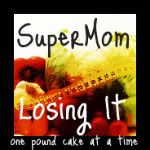First of all, let me take a second to explain exactly what the term "glycemic index" means.
When you eat, glucose is digested and enters the blood stream. The glycemic index of a food is, basically, how slow or fast it raises your blood sugar. Foods with a lower GI raise your blood sugar slowly and steadily while higher GI foods raise it quicker. With that in mind, you might think that only high carb, high sugar foods would have a high GI and lower carb/sugar foods would have a low GI, right? WRONG! It was a shock at some of the GI counts of many foods!
For example, a snickers bar has a higher lower GI than rice! And pasta has a lower GI than pumpkin!
Why is this surprising? Well, obviously a snicker's bar is full of sugar and carbs. And pumpkin is a low-carb staple for many (including me!).
Other surprising facts, low-GI does NOT mean low carb - pasta, some breads, and vegetables such as peas and corn are all low GI, but notorious for being BIG no-no's for the low-carb crowd. Also, GI has NOTHING to do with the amount of fat or sodium in a food, and does't even really have much to do with the amount of sugar in an item.
So what does this mean?
If you are a diabetic, low GI foods are exactly what you need - they don't spike your blood sugar and will help you regulate your insulin levels.
If you are NOT a diabetic, sticking to a low GI diet won't hurt you either. That being said, it's not necessarily the way to go for weight loss either, since many of the "allowed" foods on a low GI diet include starchy fruits and vegetables and foods like white pasta (which has a lower GI than whole wheat pasta!!). Something else to consider is that a low-GI diet is NOT beneficial for someone that is eating gluten free as many of the gluten free staples (corn flour, rice, rice flour, etc) are high GI foods.
Of course, ANY diet can be modified to fit your individual needs. If need to eat gluten free and GI it AN be done. If you need to eat low carb and GI, it can be done too - quite easily in fact.
So, what do I plan to do with this information?
I plan on staying on my current low-carb plan until I get to my goal weight (140-150-ish), then I will move on to a low-GI diet while I'm in maintenance. I feel that, for me, it is a great way to go.
If you want more information on the glycemic index you can visit the following web sites:
The GI Diet
University of Sydney's Glycemic Index Site
The Mayo Clinic's Glycemic Index Page
Diabetes.Org











1 comment:
I just stumbled on your blog! We have very similar stories! I depended totally on God to help me lose 81 pounds. Thank you so much for sharing your life...I know how hard it is! Come visit me!
Post a Comment